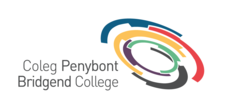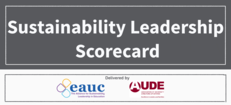Bridgend College shares their experience of using the Sustainability Leadership Scorecard
What was pivotal in you securing senior management authorisation to use the Sustainability Leadership Scorecard?
Bridgend College is a signatory to the SDG Accord and we know and accept that we have a collective responsibility and moral obligation to act positively to tackle some of the biggest threats we all face as a global community, set against a backdrop of geopolitical and geo-economic tensions as well as local challenges too.
Securing approval from senior management was relatively straight forward as we recognised the SLS as being a valuable tool in helping us voluntarily develop broader and deeper level thinking and promote further discussion and debate on a range of issues. The SLS was seen as a great way to encourage others to engage in sustainability issues and the role and responsibility we all have in helping the organisation focus on those areas of priority and those areas which offer the greatest positive impact.
In addition, the benefit of the SLS was seen as something which helps us knit together objectives and align with the SDG’s particularly as the tool offered flexibility in this application. There are curriculum benefits too as the results and links to the SDG’s can be taken into the classroom environment; this was seen as a positive benefit of the tool.
The SLS is seen as a tool to support our sustainable development strategy. The results of the scoring exercise may now find their way into our strategy as additional objectives and targets. There is of course much further discussion to be had following the scoring exercise but this is both positive and forward-looking and, is reflective of our organisational culture.
In terms of both our purpose and our legacy this places a huge burden of responsibility on the shoulders of our college leaders but this aligns with our ambition to be an extraordinary organisation and we are not afraid to ask some of the tough questions - the ‘killer questions’, as part of a business growth mindset.
What was your approach to completing the Sustainability Leadership Scorecard and how did you encourage colleagues from other Departments to participate and help you?
The approach we took was for one person to lead on working collaboratively with others through initial structured meetings which introduced the SLS via formal presentation and discussion. Once the group had agreed to authorise use of the SLS, individuals within the group were then able to take time by themselves to engage more fully with the questions, liaising with other staff if they wished and generate scores and a brief narrative. Those people supporting this process included the Vice Principal for Resources, Facilities Manager, Health/Safety and Sustainable Development Manager, Director of People, Director of FE, Finance Manager, Director of Work Based Learning and the Director of Funding, Registry and Financial Services.
What are the 3 top benefits of using the Sustainability Leadership Scorecard?
- Simplicity in design and use
- Encourages deeper level thinking and promotes discussion and debate
- Focuses on priority areas and areas of greatest impact








 Except where otherwise stated, content on this site is
licensed under a Creative Commons Attribution 3.0 License.
Except where otherwise stated, content on this site is
licensed under a Creative Commons Attribution 3.0 License.
